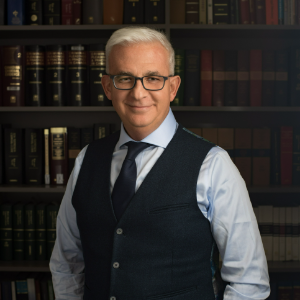Best Lawyers in Canada for Criminal Defence
Practice Area Overview
Prosecutions may be summary proceedings, meaning that the process will take place in the Provincial Court and for which the majority of offences have a maximum of six months incarceration upon conviction or indictable offences for which the maximum can be as high as a life sentence. The decision as to whether an offence is proceeded upon one way or the other is dictated by statute or at the election of the crown prosecutor. Indictable offences may be tried in provincial court, or in Queen's Bench (Superior Court) before a judge alone or before a judge and jury. This choice is made by the person charged in conjunction with counsel.
Many offences now have minimum sentences. This means that a judge is, upon a guilty plea or conviction, required by law to send a person to jail. Other offences may have a broad scope of possible sentences varying from probation to jail, conditional sentences to conditional discharges. Convictions may result in ancillary orders such as weapons prohibitions, or mandatory placement on the child abuse or sexual offenders registries. A criminal record can prevent bonding or entry into the United States or other countries. The length of incarceration may result in removal from Canada for individuals who do not possess Canadian Citizenship.
Provincial offences are tried in the provincial court system and are often regulatory in nature. High fines, jail, restrictions on practice in a trade, driving privileges, seizures of goods, professional licensing, trade, and property issues are just some sentences and areas effected by provincial legislation.
Municipal offences often deal with city or town regulation and the scope of such offences is tightly regulated based upon the powers given to a municipality by provincial legislation.
The Charter or Rights and Freedoms is the paramount protection for individuals in Canada. Many charges require an analysis of rights granted under the Charter to determine if a breach of has occurred in any of a number of areas including: whether a statement given to a police officer or other person in authority is admissible, was there a proper search and seizure, is the result of the breath test admissible or should it be excluded, was right to counsel given and facilitated. Virtually any evidence collected by police I may be subject to Charter scrutiny.
Criminal law in Canada has become a complex and comprehensive field. It requires a vast knowledge of the interplay between a host of pieces of legislation. A qualified experienced lawyer is critical to representation. Cases often require immediate action on the part of an attorney either to prevent charges from being laid or to begin the defense process in an effort to preserve evidence or defenses. Laying the groundwork early, interviewing witnesses, access to the use of an array of experts are tools a capable counsel will impart at the onset of a case.
Choice of counsel is integral. The ability to analyze, to advocate, negotiate, communicate, and focus on the issues are part of a looter's skill set. The ability to cross examine is fundamental, not all lawyers are the same. Capable experienced counsel can make the difference between conviction and acquittal.
Select a location from the list below to find the best legal talent for your needs.
Province


Our Methodology
Recognition by Best Lawyers is based entirely on peer review. Our methodology is designed to capture, as accurately as possible, the consensus opinion of leading lawyers about the professional abilities of their colleagues within the same geographical area and legal practice area.
The Process
Best Lawyers employs a sophisticated, conscientious, rational, and transparent survey process designed to elicit meaningful and substantive evaluations of the quality of legal services. Our belief has always been that the quality of a peer review survey is directly related to the quality of the voters.














































